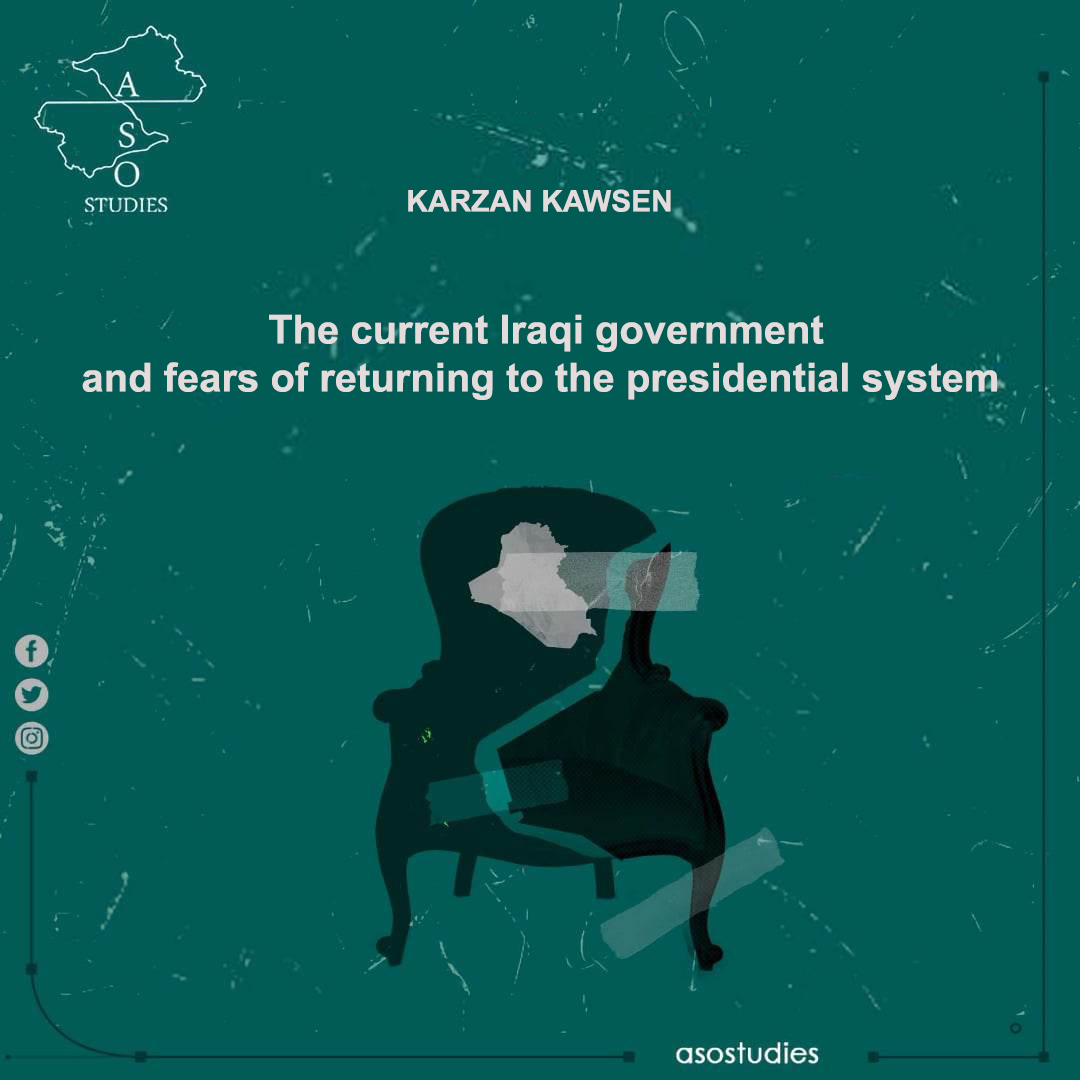The current Iraqi government and fears of returning to the presidential system
Karzan KAWSEN
Crucial phases for the fledgling Iraqi government are just around the corner, because it has come up by conflicts had been settled, notwithstanding that this party leaded by the prime minister Mohammed Al-Sudanee is come into existence in 2021 and consider a new emerged party and has just 3 seats in parliament, yet, he assumed power as result o the of the political dispute and was about on the brink of armed conflict. Because he still the only nominee who the “Coordination framework for pro-Iran forces “had been insisting on, and because he is practically mediated two opposing parties, besides, the inability to confront any of them, and the prevail is heavily skewed towards the pro-Iran forces contributing to strengthen their agenda in Iraq.
In contrast, Muqtada al-Sadr can move swiftly large crowds of angry Iraqi mob audiences. He can easily polarize various segments to his political goals that Iraqis seem to agree on: “the political independence of the Iraqi prime minister”.
Al-Sudani was preceded by two prime ministers who showed a significant amount of political resignation during their tenure. That is, Adel Abdul Mahdi and Mustafa Al-Kazemi, but the parliamentary majority quickly turned against them and established positions against them. Al-Kadhimi was even subjected to an assassination attempt at his home (November 2021) via drones. Abdul-Mahdi's inability to carry out reform measures also led to the largest demonstrations against his rule.
There is almost an agreement among political analysts that the idea of political quotas has sabotaged the effectiveness of the Iraqi parliament in monitoring the implementation of the law, and will continue to sabotage it, as long as the parliamentary blocs do not deviate from the narrow frameworks of their parties' ideological interests. On the other hand, the laws enacted by the legislature appear to be unresponsive to the demands and hopes of the people for political reform. Therefore, the position of the Iraqi government towards these laws will be confined to two things:
The Iraqi government may not be able to enforce the laws it passes.
Or laws may be enacted that are devoted only to the interests of the parliamentary majority.
The other problem facing this government is that the authorities in Iraq are not clearly separated from each other. None of the three presidencies has a coordination mechanism necessary for each to carry out its functions properly. This further perpetuates differences between them.
Some political analysts and legal experts also sometimes propose the idea of returning to the presidential system to get Iraq out of the complex political conflict. This is despite their knowledge of the hard experience of the Iraqi people with the dictatorship of the presidential regime throughout Saddam Hussein's rule. What's new about this proposal? In short, it is the amendment of the electoral system to choose the executive branch directly by the people so that his election is a representation of their free and direct choice. This is an impossible idea in light of the rampant corruption files even in the electoral process. But it comes as a proposal that corresponds to the current reality, where the prime minister is elected by parliamentary blocs controlled by an authoritarian minority outside parliament.
Based on the results of previous parliamentary elections, people can directly choose a prime minister if the electoral system allows them to do so. This will also give an opportunity for opposition political forces to contribute their votes to choose whomever they deem compatible with their political aspirations. This desire is attributed to the files accumulated solidly in the structure of the Iraqi authority:
That is, administrative corruption, the nature of the political contexts, and their indifference to popular demands for reform. These are the same files that caused the successive failure of all former Iraqi governments.
Thus, if the people had the opportunity to directly elect the prime minister and the republic without going through the parliamentary filter, which would produce alliances between forces, as is the case now, and impose on the people a candidate they did not want.
The paradox is that most of those calling for a return to the presidential system come from among the Shiite leaders in the coordination framework, such as Nouri al-Maliki, who believes that reforming power in Iraq requires a transition to a presidential or semi-presidential system as an alternative to the parliamentary system.
Both Kurds and Sunni Arabs are afraid of the hypothesis of constitutional amendments that contradict the first article of the Iraqi constitution, which in 2005 approved the principle of a republican, representative and democratic system of government. Because the presidential system, if it takes place in Iraq, will lead to the concentration of power in the hands of the President of the Republic, and it will be perplexed for the parliament to fall into power, as a monitoring body capable of holding accountable the executive authority that commits abuses and unfair use of power. This will end the role of Parliament as the representative of the people and place it in the hands of the President of the Republic.
In addition to the above, there is another perception, which says that given the history of Iraq, any political system in Iraq will end up in authoritarianism and the crisis of governance itself, and nothing will change in the file of corruption. Because the root of the problem can be in Iraq's political legacy of authoritarianism and exclusion of opponents. Thus, whether the prime minister is elected by parliamentary blocs, he has full authoritarian powers, as happened with the rule of Nouri al-Maliki. Or is he directly elected by the people; he will seek to concentrate most of the power in his hands. It will not be able to distance itself from the heavy influences of domestic and regional power interests.
The attempts at coup d'état and assassination within the Iraqi authority since the establishment of the Iraqi State in 1921 bear witness to the inability of successive Iraqi governments to face the country's complex crises alone or to move the political situation to a better condition. After all, the persistence of the same conditions will inevitably lead to the production of paralyzed governments.

